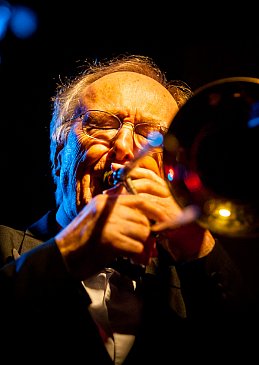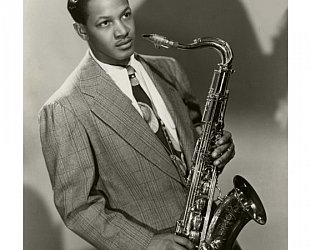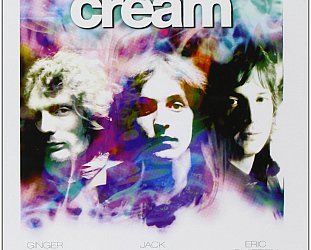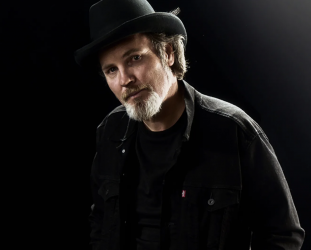Graham Reid | | 4 min read

Walk into any decent record shop and there is Chris Barber's name up front on a new album, The Skiffle Sessions: Live in Belfast, recorded last year with Van Morrison, legendary New Orleans piano man Dr John and Lonnie Donegan, the man credited with founding the skiffle movement in 1954 when he sang Rock Island Line.
What history books seldom note is that at the time, Donegan, whose skiffle influenced the adolescent Beatles in the years before Elvis, was a member of Barber's band and the song was lifted from a Barber album.
"When we started doing skiffle it was just Lonnie and me," says trombonist Barber.
"Lonnie was the banjo player and he sang and played guitar and I played double bass. We didn't use the word 'skiffle' at first, but I had a record made in 1929 called Hometown Skiffle, on Paramount, so we picked the name up from there. We didn't invent the name but we were the first to use it."
Barber admits their early music was an attempt at the style of one of their heroes, black bluesman Leadbelly, but "after Lonnie left us to become a pop star, we tried carrying on but it was pretty terrible."
"So we stopped and only do skiffle now if Lonnie plays with us or, in this case Van, and him with us."
Music aside, Barber is at his most interesting when speaking of the colour barriers he encountered when he first took his band to the United States in 1959.
He recalls the white president of the New Orleans Jazz Society, which didn't let black performers enter through the front door, saying to him "you got to hand it to these niggers, they sure got that beat."
"When we got to New Orleans it was still state law for black and white people not to be on the stage at the same time."
He speaks of staying with Muddy Waters but not being allowed to eat in the same restaurants, of coloured-only bathrooms and of an otherwise charming southern dowager telling him "we treat our nigras well but they go up north and get ideas."
Although these times seem long gone, Barber reminds they are in living memory for many, both black and white.
As he jokes about gangsters and strip clubs in New Orleans, his passion for grand prix racing (he used to race against Graham Hill in the 60s as the proud owner of a Lotus Elite), and having "been blessed with a constitution ideal for touring," it is almost possible to forget it has been music which has sustained him this past half-century.
Not a dogmatist, Barber's style - Dixie to some ears, a middle path between trad and modern jazz to others - is a broad church which includes earthy blues and jazz standards, a band with an electric guitarist, and recordings with gospel singer Sister Rosetta Tharpe, and rural bluesmen Sonny Terry and Brownie McGhee.
He took his music to Canada and the other side of the Berlin Wall, to jazz festivals such as Newport and New Orleans, and is regular on concert stages across Europe. His conversation is, unconsciously, a roll call of the jazz and blues geniuses he has encountered.
Yet although his music has changed it's always somehow remained the same.
"It's traditional jazz, as far as I understand the phrase, and I include Muddy Waters in that. The only difference is that with Muddy it's vocal, guitar and piano instead of trumpet, trombone and clarinet. What you do and how you do it, the feelings and the improvisation, are the same.
"Every now and again you get some jazz fans who take exception to us having electric guitar in the band then they shut up for 10 years - then come back and say the same thing.
"I like enthusiasts, not fans. Fans are like Elvis fans who believe he's alive and on the moon. Enthusiasts enjoy the music and are not trying to make something of it that it isn't.
"Fans can never understand why those whose work they like would want to play anything they don't. They won't accept the musician might like something they don't.
"Anyone who likes jazz has a feeling for it, that's why they like it. And if you are prepared to try and make a living playing jazz you must love it. If you love it, you feel it. You wouldn't do it if you didn't feel it."





post a comment